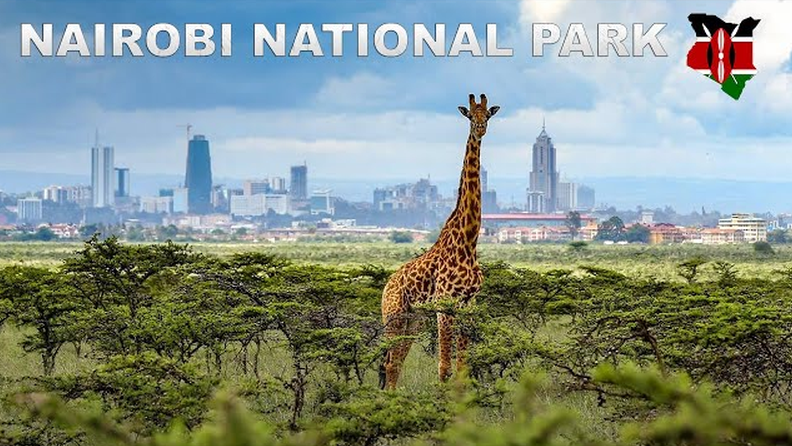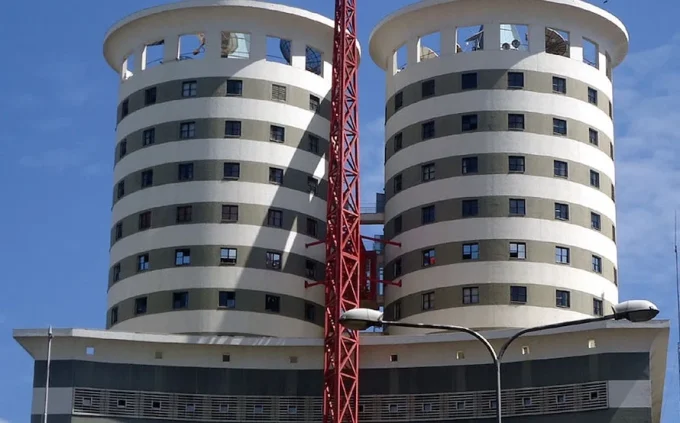Of the 24 national parks in Kenya, the oldest one, which is the Nairobi National Park, established and gazetted in 1946 before the country had even gained independence, is in its capital, Nairobi, a short drive out of the central business district (CBD).
And since it is the only national park within a capital city in the world, thanks to it, it has earned Nairobi recognition as “The World’s only Wildlife Capital.”
The boundary of this Nairobi National Park encompasses approximately 78,000 acres, nearly half of that which belongs to all the people of the City County after the government increased its size from 29,000 acres to meet the ecological requirements of its wildlife populations each year.
> Uhuru Hands 2,000 Acre Farm to Nairobi National Park
What animals live in Nairobi National Park?
The Nairobi National Park, managed by Kenya Wildlife Service (KWS), is best known for its expansive and pristine forests, consisting partly of thick woods and leafy bushes in a beautiful wide-open but mixed woodland-grassland ecosystem of savanna. Tourists and visitors enjoy exploring its lands and waters and experiencing its wildlife.
Inside it, there are over 100 known species of mammals, 400 migratory and endemic bird species, and countless insects. Some of the most iconic animals you can spot when you visit include lions, leopards, cheetahs, buffaloes, giraffes, zebras, and baboons.
However, lions and cheetahs are hard to spot when you visit in the afternoons, whereas elephants are missing in the park.
Nairobi National Park Fees 2024
An entrance fee is required to visit Nairobi National Park year-round. These fees help fund the maintenance of the park spaces by the government for millions of annual visitors, and they are Ksh2,000 for Kenyan citizens and Ksh500 for their children or students after an upward review from Ksh430/resident and Ksh215/child park entry cost of the period 2022-2023 to bring Conservation Fees 2024-2025.
Today, international visitors pay $100 and $35 for their kids, up from $43 and $22, respectively, when visiting the park during high seasons from July to March.
A similar $100 is the entry fee for adult foreigners visiting during the low seasons of March to June, whereby the park charges $20 per child.
There are additional fees when visitors access the park by private means using cars, and those with vehicles with less than six seats are billed Ksh1,000, Ksh1,500 for those having up to 14 seats, Ksh2,500 for vehicles having between 15 and 20 seats, and Ksh3,500 for those with a microbus or a bus with 21 seats and above.
Camping fees at Nairobi National Park generally range between $35 and $20 for international tourists and Ksh250 and Ksh200 for locals or citizens.
When visiting, citizens of Kenya are required to carry identification documents or any other qualifying proof of residence to get cheaper resident rates to access the park.
How do I pay for Nairobi National Park online?
The access pass to Nairobi National Park is obtainable online via the eCitizen Government platform when you;
1. Visit kws.ecitizen.go.ke
2. Enter your login credentials to access the Kenya Wildlife Service eCitizen portal
3. Read the instructions carefully, then fill out the park entry application form
4. Follow the process to checkout and pay Nairobi National Park fees via mobile money (Mpesa or Airtel Money), credit/debit cards, or online banking
5. Download and print the application invoice (receipt)
During your visit, carry your Original National Identification Card, Original Alien Identification Card, or Passport for easier processing of your details before entry.
> How to Book SGR and Travel by Train in Kenya













Leave a comment